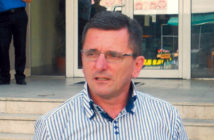During 2014 we observed all plenary sessions and sessions of parliamentary committees dealing with anti-corruption issues and collected data on activities of the Parliament and its members. During this period our team monitored 72 days of plenary sessions and 36 sessions of working bodies.
We put special emphasis on sessions dedicated to the use of control mechanisms by the parliamentary working bodies and sessions of the Anticorruption Committee. During this period, MANS submitted five initiatives to the parliamentary working bodies asking for use of different control mechanisms[1]. The committees acted upon our four initiatives and requested information from responsible institutions, while one is still pending.
MANS also provided assistance to four CSOs to address relevant Parliament’s committees. One of the initiatives was revised and institutions requested additional information from relevant institutions, while the rest are still pending.
We proposed 163 amendments to eight laws discussed by the Parliament through cooperation with MPs from different political parties and 11 of them were adopted .
MANS representatives were invited to participate at 16 sessions of parliamentary working bodies and 17 sessions of the Working Group for Building Trust in the Election Process.
[1] Initiatives were related to: buying of ID cards in the pre-election period and activities of the Prosecutor’s Office and the Police in revealing corruption in privatization processes (Anticorruption Committee); Misuse of the state-owned Montenegro Airlines for bringing voters of the ruling party to Montenegro to vote, free of charge (Economy, Finance and Budget Committee); More active engagement of the Parliament in innovation of the 23rd and 24th Chapters (European Integration Committee), Environmental situation in town of Pljevlja (Tourism, Agriculture, Ecology and Spatial Planning Committee).


